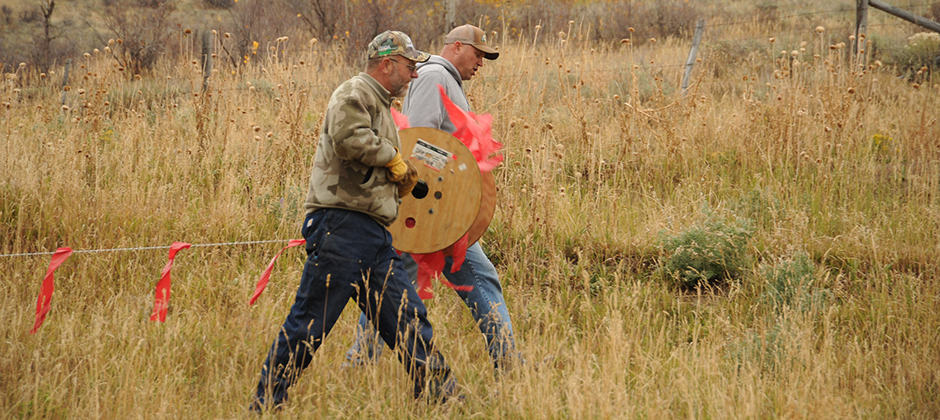Share this article
TWS advocates for robust USDA appropriations in FY 2023
The Wildlife Society is requesting that Congress provide robust funding in Fiscal Year 2023 for U.S. Department of Agriculture programs that support wildlife professionals and their work.
The House and Senate Subcommittees on Agriculture, Rural Development, Food and Drug Administration, and Related Agencies are currently drafting initial funding proposals for key natural resource agencies like the Animal and Plant Health Inspection Service, National Institute of Food and Agriculture and the Natural Resources Conservation Service. The Wildlife Society’s requests in the form of written testimony emphasized key funding needs to support implementation of Farm Bill Conservation programs and public-private partnerships that have been effective in managing habitat on private lands.
The Wildlife Society emphasized robust funding for Wildlife Services, an Animal and Plant Health Inspection Service (APHIS) unit that resolves human-wildlife conflicts and protects wildlife, agriculture and people from wildlife damage and wildlife-borne diseases in the United States. The Society also requested a $3.7 million increase in funding for the Wildlife Service’s Wildlife Damage Management program and a $1.6 million increase in funding for Methods Development program in FY 2023. Wildlife Damage Management provides technical assistance to local governments and other partners in protecting natural and human-made resources from wildlife, while Methods Development researches human-wildlife conflict, including its effects on people, communities and other wildlife species.
The Wildlife Society has also requested $10 million for the Renewable Resources Extension Act (RREA) housed in the USDA’s National Institute of Food and Agriculture. The RREA provides resources to state extension programs that engage land owners and land managers on the latest management tools applicable to forest and rangeland resources, including wildlife, soil and recreation. While the RREA has received relatively the same amount of funding for the last decade, TWS requested a $6 million increase to meet the growing need for sustainable outreach. Additionally, TWS proposed $43 million for the McIntire-Stennis Cooperative Forestry Program, a $7 million increase from the enacted FY 2022 level. This long-standing program awards federal funding for forestry research on forest productivity, utilization and protection; trains future natural resources scientists; and promotes interdisciplinary forestry research.
Each year, Congress also sets funding aside to assist landowners and land managers on implementation of Farm Bill conservation programs. The USDA’s Natural Resources Conservation Service (NRCS) is the primary federal agency that works with private landowners to help them conserve, maintain and improve natural resources on their lands. The Wildlife Society has requested a $126.2 million increase in funding for landowner technical assistance in preparation for program changes that will coincide with adoption of a new Farm Bill in 2023.
As more details are revealed about FY 2023, which begins in October, TWS will re-examine and submit additional appropriations requests regarding these program areas.
Members of TWS can check out the appropriations action center in the coming weeks for updates on the Administration requests as well as TWS’ positioning on FY 2023 funding.
Header Image: APHIS Wildlife Services program employees install fladry fencing, a nonlethal tool used to prevent livestock depredation, at Walton Ranch in Jackson Hole, Wyoming. Credit: Pamela Manns/USDA








